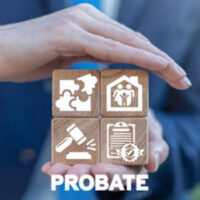Explaining New York’s Probate Process

When a loved one starts to reach their golden years, it is a good idea for them to start thinking about their estate plan. It can be difficult to get our more stubborn family members to discuss such a topic, but it is crucial, particularly if they have significant assets that run the risk of being tied up in the probate process. New York probate is designed to safely convey assets to a person’s beneficiaries, but there can be unpleasant surprises.
Time-Consuming & Detailed
Probate happens in New York in what is known as Surrogate’s Court. The person who presents the estate to the court is known as the executor; this is usually a person that the deceased has chosen to represent their interests. That said, it is important to keep in mind that the executor only acquires any power over the estate once they have received what are known as ‘letters testamentary’ – essentially a court order granting them power.
The executor has several duties in probate court. They must not only inventory all of the decedent’s assets and debts, but also paying off any debts and taxes, as well as distributing assets to one’s heirs when the process is concluded. What many beneficiaries do not understand is that all of this can take months or even years if a proper estate plan is not in place – and those beneficiaries do not generally want to wait.
Is Avoiding Probate Possible?
If this sounds like a time-consuming process to you and your elderly loved one, it may be relevant to know that in some cases, it may be possible to avoid probate entirely. In addition to saving time and money, in most cases avoiding probate also means that Medicaid cannot recover fees from the remainder of the decedent’s estate. Some assets do not, by definition, pass through probate in New York. Life insurance policies are among the most common – upon the policyholder’s passing, the proceeds simply go to the named beneficiary.
For assets that would normally pass through probate, a revocable living trust can protect them. In a living trust, the assets are placed in the name of the trust itself, removing them from the individual owner’s estate and thus, from the need to go through probate. Assets in a trust cannot be leveraged to pay creditors, or granted to alternate beneficiaries in the event of a contest.
Contact A Pleasantville or Mahopac Probate Attorney
If you or an elderly loved one is in need of an estate plan or is looking to avoid probate, contacting a Westchester County and Putnam County probate attorney can make all the difference for your beneficiaries further down the line. Meyer & Spencer, PC has experience in these matters, and we are ready and willing to put our knowledge to work for you. Call our office today at (914) 741-2288 to schedule a consultation.
